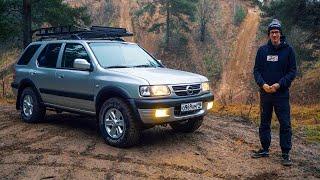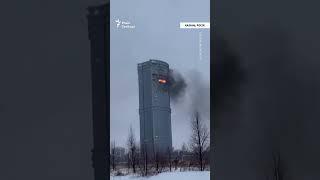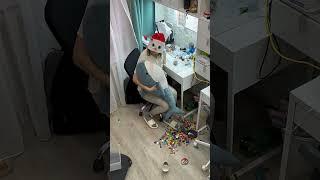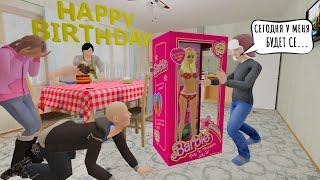Комментарии:

This was easily the most useful photography lesson I've ever received. To call this a video about metering is really underselling it. If you understand how to implement all of this, you'll take intentionally exposed images every time.
Ответить
Wow, amazing video and presentation! Instantly subscribed!
Ответить
Cody, I’m trying to paraphrase to get your excellent lesson straight.
Is idea that you’re sliding your spot metering readings along the scale so that your brightest area isn’t too far over Zone 8 and your darkest area is somewhere in a zone not too low to live with. Then when that’s all in place you work out what shutter speed would get you Zone 5?

It seems like you were showing your images on the laptop right there in the field. Are you developing and scanning there in your van or was that the magic of cinema. 😂
I just ask because for my B&W film I’m developing with Df96 and DSLR scanning with Valoi Easy35 so my whole rig fits in a backpack. I don’t know about developing color so maybe my question is a ridiculous one. 😂

I’ve been using a DSLR (Pentax K-3 Miii Monochrome) as a spot meter to help me expose film in my 35mm cameras (Pentax MX). This will help me expand what I’m doing with that workflow.
Ответить
This is a really nice video, thank you. I liked the way you slid your spot readings over the gray zones. Do you use a tool to help you visualize how the spot readings are sliding over the zones in the field or you just are able to visualize that in your head?
Ответить
extraordinarily helpful 🙏🏻 can’t thank ya enough
Ответить
Great video!!!
Ответить
So would the last 2 examples have been good situations where a graduated filter would have helped out?
Ответить
Thanks Cody. I totally understand this concept now. I just have a couple questions. For someone starting out learning this discipline, how do you notate your various readings? Did you write them on a scale as shown in your video or was it just writing down the readings and converting shutter spears to place them in the desired zone. I’d like to write my setting but I want to be efficient with it. Thanks.
Ответить
Holy smokes. As a newbie who is hungry to learn, this was way more than I hoped for. Excellent video!!!
Ответить
Excellent explanation
Ответить
I think it clicked for me in the last image. So are you taking the darkest part of the image and the lightest part of the image then shooting at what ever stop would be in the middle of the two readings?
Ответить
"To photograph is to capture varying degrees of light." That's fireeeeeee, put it on a t-shirt haha 🔥🔥
Ответить
Thank you, so clear!
Ответить
Well explained. Tx
Ответить
Less than 6 minutes in and I already learned super value information. You explained that very well - thank you!
Ответить
I've been doing photography since the '80s and this is one of the best explanations of how to choose your settings based on what the light is doing in your intended image that I have ever seen.
Ответить
Great video! Love Ansel Adams. My favorite color film is slide film though, so a video dedicated to this would be fantastic.
Ответить
This is simply a wonderful explanation of the joys of metering. You have real skills sir!
Ответить
Great video, question, if you take a reflective meter of the blackest point and the brightest point, couldn't you just average the reading?
Ответить
Do you have something that helps keep track of the readings in certain zones?
Ответить
Awesome video. Super helpful explanation and demo. 👍🏻
Ответить
Such a good video!
Ответить
Just picked up my first AE-1 the other day, it’s no Mamiya lmao but this definitely educated me thank you!
Ответить
Amazing video Cody thank you.
Ответить
This video was so good. You the man!
Ответить
I've been shooting film 39 years and counting, I have seen/heard many explanations of all this. Great tutorial for beginners in the zone system. Your delivery was calm and well paced. Showing us what you called a mistaken exposure at the end (given your stated artistic intention) was perfect to include in the video. The light meter is a very artistic tool, as is scanning film. With time and knowledge of the film stock you are using you will make faster decisions based on whether you want the scene as you see it or not. That's a key factor. Do you go to shoot at a given time of the day and month of the year to capture a specific light you are likely to get or do you go to shoot and alter the scene with exposure. That's photography in the field.
Ответить
This was the best explanation of the zone system I've ever heard/seen! Thanks so much!!
Ответить
I'll never sleep again after seeing you put a spent roll in your pocket without sealing it. WHAT IN THE WORLD
Ответить
Great video, but i have one question. How do you know what apeture to pick for each scene. Is this something that you need to decide for yourself and if you want more or less depth of field or is it something that can be also calculated?
Ответить
Ngl metering is so unfun. Completely takes you out of the photography
Ответить
Thank you so much for this really really amazing video. It explained a lot and it is crazy to have this for free.
Ответить
Thank you for this! more often then not most of these I’ve seen are all fluff, this was great and to the point.
Ответить
GREAT explanation
Ответить
Great video!
Ответить
Thank you for introducing the difference between negative and slide film. I agree with your viewpoints on slide films. Thank you. I used to enjoy the Sekonic L-358 and incident metering for Kodachrome and the newer E100.
Ответить
Subscribed - this is excellent
Ответить
Il n'est pas toujours facile de faire des photos avec un posemètre indépendant pour avoir la bonne photo sur le négatif. Avec les différentes vitesses que j'ai pu voir dans la vidéo. Si on va très peu vers le haut, ou vers le bas, la photo sera différente.Dans le train, la densité me parait bonne si on la corrige au développement.La véritable photographie, se joue dans ce que vous faites et bon courage
pour avoir une photo comme vous la désirez, avec beaucoup de travail avoir des succès mais aussi des échecs, c'est de ces derniers cités que l'on apprend beaucoup.

Excellent video! Thank you for the in-depth instructions on metering. I think I need to brush up on the Zone System now!
Ответить
2 years too late to comment but this is coherent as hell, very immersive learning process for me!
Ответить
I don’t understand
Ответить
Pure revelation!!
Ответить
Wonderfully put. You need to teach. You have the gift.
Ответить
What a video! Thanks Cody! This was absolute knowledge and I appreciate it!
Ответить
i put so many videos in my “watch later” playlist but this one I actually watched on the spot, super glad I did. Stellar lesson, friend.
Ответить
So if I place my light meter on shadows, it's giving me middle gray correct? So to get them exposed, I need to make my aperture or shutter speed two stops lower to take the pic to have those in zone III?
Ответить
Amazing! More content like this please
Ответить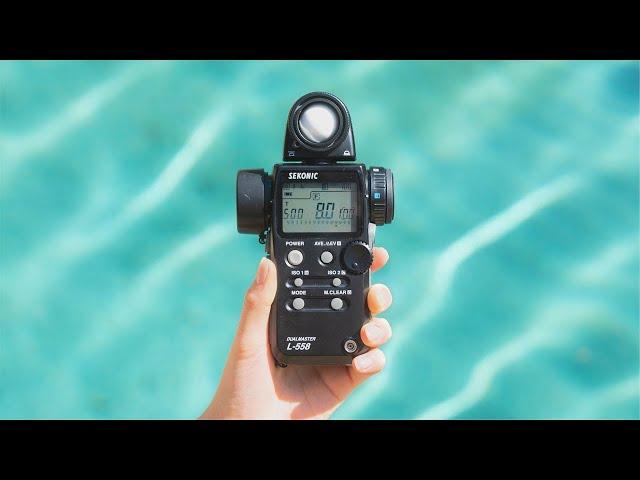



![Simple Plan no Ceará Music 2012 - Fortaleza [Fan Edit] Simple Plan no Ceará Music 2012 - Fortaleza [Fan Edit]](https://rtube.cc/img/upload/a2c1azY2R2xpOHA.jpg)
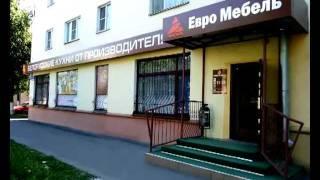
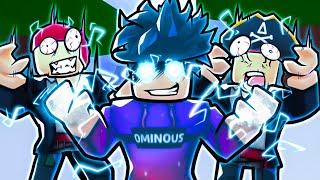





![[#엔돌핀급상승] 지승현 명연기 모음⭐️ // 거란군은 단 한 명도 살아서 돌아가지 못할 것이다 [고려 거란 전쟁] | KBS 방송 [#엔돌핀급상승] 지승현 명연기 모음⭐️ // 거란군은 단 한 명도 살아서 돌아가지 못할 것이다 [고려 거란 전쟁] | KBS 방송](https://rtube.cc/img/upload/WWlOcm9qdGZiTE4.jpg)




